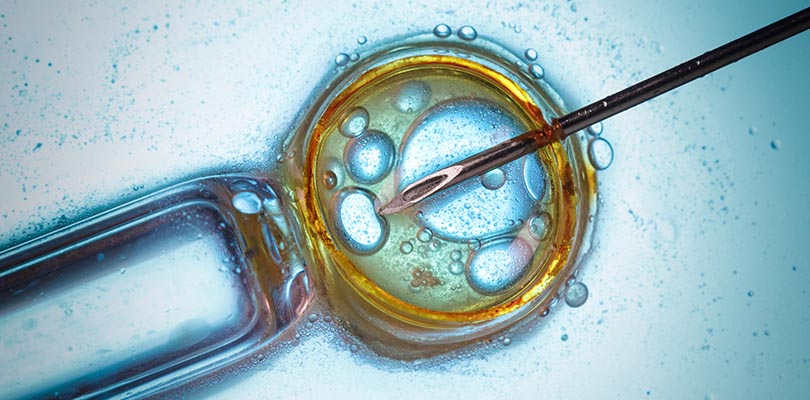How Long Does it Take to Get Pregnant With IVF?
People preparing to have a child are set on a rollercoaster ride of emotions and experiences. As time progresses without a pregnancy, the ride features more lows than highs as frustration, disappointment, and shame override the excitement.
As frustration shifts towards desperation, women and couples look for alternatives to conceive. For these people, in vitro fertilization (IVF) becomes a viable option to have the child and the family they have always wanted.
What Is In Vitro Fertilization?
In the simplest terms, IVF is the process of joining an egg with sperm in a controlled, laboratory setting. It is just one of the assisted reproductive technologies (ART), which are a group of medical interventions desired to help women become pregnant.
With IVF, the name of the procedure actually explains what it entails as in vitro means “outside of the body.”
IVF will not be for everyone. The process is usually reserved for people who have tried other ARTs without finding the results they desire.
The In Vitro Fertilization Process Step by Step
IVF follows a 5-step process to produce a pregnancy:
- Stimulation. Also called superovulation, this step features fertility medications given to the woman to increase her egg production.
- Retrieval. During an outpatient surgery, the doctor retrieves eggs from the ovaries through the vagina with a suction device on the end of a needle.
- Insemination/fertilization. Once the best eggs are selected, they are mixed with sperm – insemination. Then, in a few hours, the sperm (hopefully) enter the egg – fertilization.
- Embryo culture. The fertilized egg or eggs are left to divide into an embryo for several days until staff can determine the embryo is growing well.
- Embryo transfer. Multiple embryos are placed in the woman’s womb through the vagina with a thin tube. If an embryo becomes implanted, the procedure is successful and results in pregnancy.
What to Expect After IVF
Following the procedure, a woman will receive hormone therapy for several months to increase the chances of pregnancy by thickening the uterus walls, allowing the embryo to attach easier. Without the higher levels of progesterone, there would be a better chance of the procedure being unsuccessful or ending with a miscarriage.
The situation is tenuous following IVF, so one should practice a higher level of caution by resting, practicing good self-care, and watching for issues like:
- Fever
- Pain in the pelvis
- Heavy bleeding
- Blood in the urine
Within two weeks of IVF, the woman returns to the center for a pregnancy test to measure the outcome. If the test was positive, the procedure achieved its goal, and the pregnancy will continue like most others.
What Are the Chances for In Vitro Fertilization Success?
Anyone considering a medical procedure wants the highest-level care with the greatest rates of accomplishment. IVF is no different so understanding the pregnancy rates of IVF is essential.
Your 40s mark a unique period of transition and change. Here are 10 health tips for your 40s to make it the finest years yet.
Various factors affect IVF success, but age is the primary influence with success rates of:
- About 43 percent for women under 35
- About 36 percent for women age 35 to 37
- About 27 percent for women age 38 to 40
- Between 13 percent and 18 percent for women age 41 or older
It should be noted these rates do not measure pregnancies – they measure the odds of IVF pregnancies resulting in a live birth.
With a less than 50 percent chance of a full pregnancy and birth, there is a lot of uncertainty surrounding IVF. Another compounding issue with IVF is the cost.
How Much Does In Vitro Fertilization Cost?
Generally speaking, IVF is a very expensive course of treatment. Since only some insurance companies will cover these services, you may have to pay for most of the costs out-of-pocket.
To limit the expense, be sure to contact your insurance company to gather information about their coverage. Also, check with a variety of fertility clinics to learn about their fees, success rates, and any guarantees they offer regarding your treatment.
In total with medicines, procedures, tests, embryo storage, and doctor fees, the average cost for a round of IVF is between $12,000 and $17,000. Other clinics with highly qualified staff or cutting-edge technology could cost much more.
What Are the Risks of In Vitro Fertilization?
There are many pros to IVF. In the best situations, it results in a new addition to the family.
IVF also comes with risks, though. Aside from the high cost and limited success rates, IVF carries other risks as well like:
- Large amounts of time
- The fertility medications can result in:
- Bloating
- Pain in the abdomen
- Mood changes
- Headaches
- Possible weight changes
- Damage to areas during surgical procedures
In addition to these risks, struggling to become pregnant can result in significant emotional stress. Over time, these stressors can result in mental health issues including depression and anxiety.
For these reasons, it is valuable for someone to consider mental health counseling anytime they are enduring the stress of infertility or the process of IVF. A mental health professional can accurately assess and identify the issues while offering simple techniques and strategies designed to lower stress and improve well-being.
IVF isn’t the right course for everyone, but it could be the technique that completes your family.







